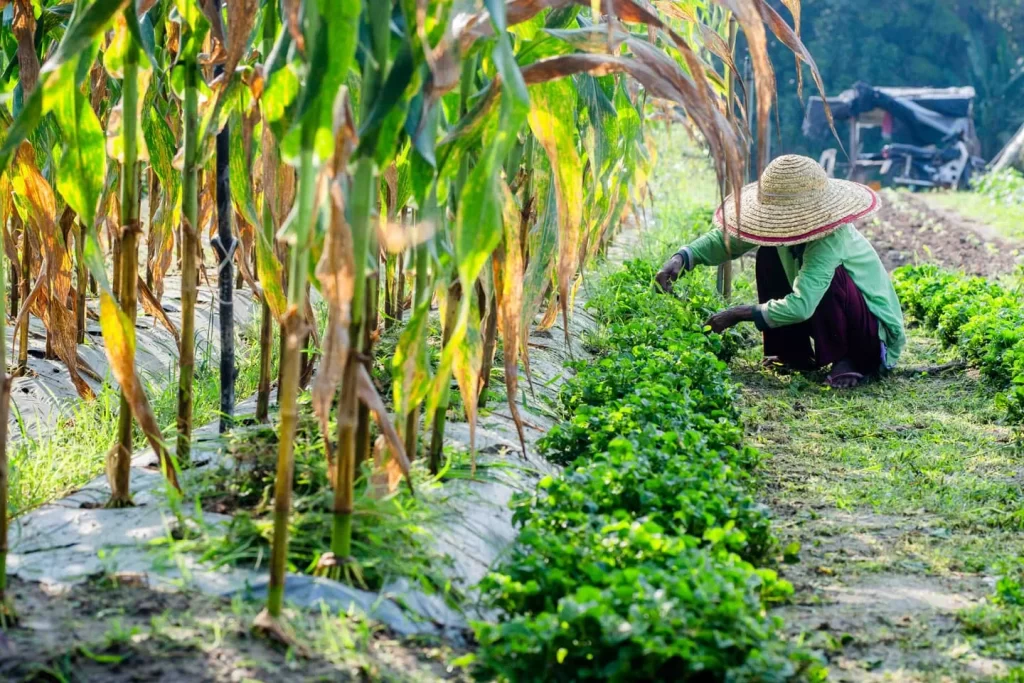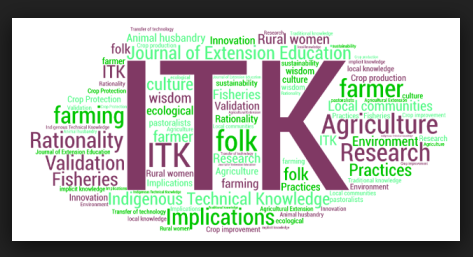Indigenous Technical Knowledge (ITK) is the actual knowledge of a population that represents both traditional and current experiences.
IAPs (Indigenous agricultural practices) are an unwritten corpus of knowledge. There is no systematic record of their existence, functions, borders, and applications. It is held in as many brains, languages, and skills as there are groups, civilizations, and surroundings today.
In order to reduce reliance on foreign inputs and to promote eco-friendly agriculture, farmers in rural communities are under great pressure to collect, conserve, validate, and utilize IAPs.

Indigenous Technical Knowledge (ITK)
ITK full form is Indigenous Technical Knowledge means this knowledge that is used by farmers generation after generation in Bangladesh. It is the traditional knowledge of the farmers in rural communities in the production, protection, and preservation of crops generated by their own and by the local people.
It is the local knowledge that is unique to the given culture of society. It is the basis for local-level decision-making in agriculture, healthcare, food preparation, education, natural resources management, and a host of other activities in rural communities.
Indigenous Technical Knowledge is culturally specific knowledge. Comparatively, universities, research institutes, and private enterprises build global knowledge systems. It guides rural decision–making in agriculture, health, food preparation, education, natural resource management, and many other fields (Warren 1991).
ITK is a society’s knowledge base that helps communication and decision-making. The notion of sustainable agriculture emerged in the late 1980s in the Indian agricultural environment, sparking interest in indigenous technical knowledge (ITK) that uses natural resources to solve agricultural and related challenges.
Objectives of Indigenous Technical Knowledge (ITK)
- To keep sound environment.
- No cost of pesticides.
- No health hazards.
- No pollution occurs.
- Less labor cost.
- Use of local materials.
Commonly used Indigenous Technical Knowledge (ITK)
Commonly used ITKs created by innovative organic farmers are given below.
Indigenous Technical Knowledge (ITK) in Agriculture:

- Spreading tobacco dust over the field to control insects.
- Applying fish cleaning water at the base of leguminous (bean) and cucurbits to get benefits.
- Detopping aush rice plants when the vegetative growth is vigorous.
- Setting up bamboo sticks or branches of trees in the rice field to sit down the birds and eat away insects helps to control insect infestation.
- Hand pollination of kakrol (Spiny gourd), cucurbit flowers for getting around, and unique fruits.
- Spraying Neem solution on the vegetables to control insects.
- Intercropping garlic and potato to minimize pest attack.
- Spreading Ash in the vegetable field to control aphids.
- Spraying cowdung mixed water in the field to prevent the attack of cattle and goats.
Indigenous Technical Knowledge (ITK) in Fishery

- Applying cow dung to feed the fish.
- Applying oil cakes in the pond to feed the fish.
- Applying rice kura (rice husk) in the pond.
- Applying lime in the pond to clean the unclean water.
- Using banana leaves in the pond to feed grass carp.
Indigenous Technical Knowledge (ITK) in Livestock

- Feeding garlic mixed with cow-dung to chicken to control ‘Ranikhet’ disease.
- Feeding birth controlling tablet (Maya tablet) to chicken for controlling “Ranikhet” also known as Newcastle disease.
- Feeding rice mixed with KMnO4 to chicken for controlling cure paul cholera.
- Feeding the flesh of molluscous to duck for Rapid growth.
- Feeding the thorny amaranth grass to livestock for improving lactation.
Importance of Indigenous Technical Knowledge (ITK)
- ITK is easy to skill and experience dependence. So the people of a community can solve their problems easily.
- Many ITK has scientific value. ITK may use for scientific research.
- It is subjective and linked with farming and involves low-cost input use.
- ITK is ecofriendly for the agricultural system.
- ITK of a specific Community helps the extension worker to measure the depth of knowledge.
- The knowledge is localized and situation-specific. So ITK helps the farmer to take the decision in their own way.
Limitations of Indigenous Technical Knowledge (ITK)
- ITK has been passed from generation to generation orally. Errors are bound to creep in ITK in the absence of proper documentation.
- Many of the ITK passed on to the community members in the form of proverbs, folklores, and folk songs. So many time member cannot remember them easily.
- The scientific community does not accept them because many of them have no scientific interpretation.
- ITK fails to hand up to the scientific rationality and hence modern Technology lost of many ITK.
